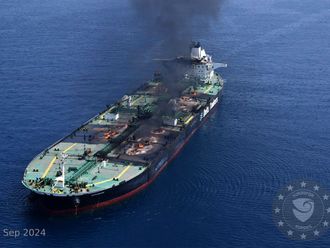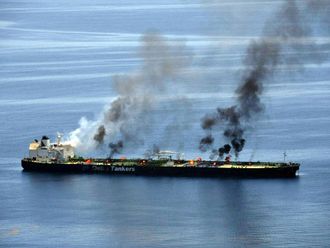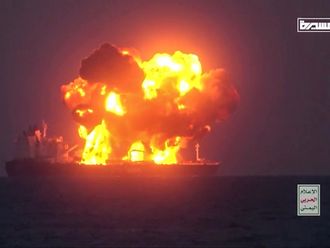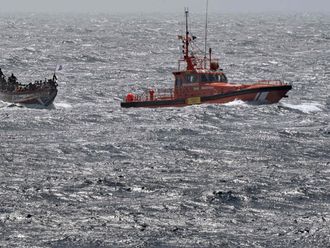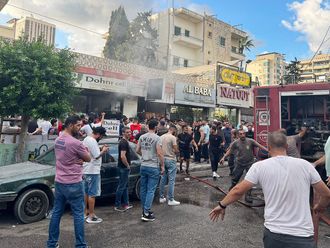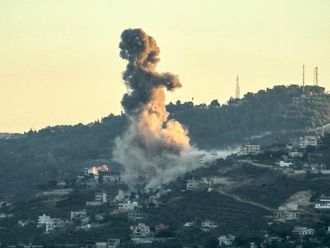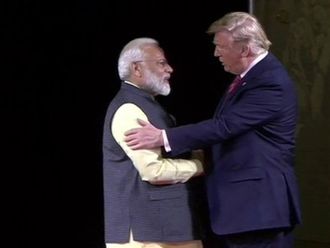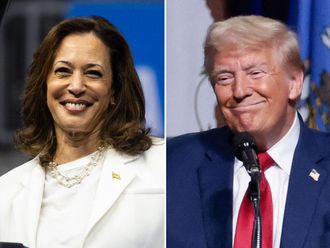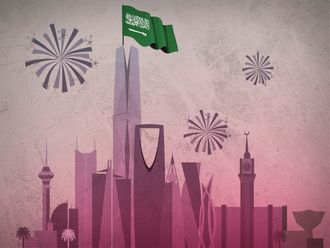Dubai: A truce to end a war between the Yemeni government and Shiite rebels that has drawn in Saudi Arabia will provide only a temporary respite because the nagging problems that fuelled the conflict remain unresolved.
Neither the government nor the insurgents have shown any real will to resolve longstanding differences that fed the conflict in the rugged, mountainous north, where rebels have economic and religious grievances. Previous truces have failed.
"I don't know whether it is a month or a year. But it is an untenable situation still. They may be able to keep up the peace for a while but this is not a long-term solution," said David Bender of the Eurasia group.
Yemen's government, which struck a truce with the insurgents on February 11, was under pressure from Western and Arab backers to wind down fighting in what allies may see as a domestic backwater to focus its energies on a bigger global threat: Al Qaida.
Allies were also keen to avoid more escalation in the on-and-off northern conflict, which in November drew in regional power Saudi Arabia after rebels seized some Saudi land, accusing Riyadh of letting Yemen's army use Saudi ground for attacks.
Security concern
Instability in Yemen, in which Al Qaida has based its regional command, is a major security concern to the United States and Gulf Arab countries, mainly top oil exporter Saudi Arabia, with whom it shares a porous 1,500-kilometre border.
A failed December attack on a US-bound plane claimed by Al Qaida's regional wing thrust Yemen to the forefront of the global fight against militancy and exacerbated concerns it could become a failed state in which Al Qaida could thrive.
"They [Yemen's allies and donor states] are essentially telling the Yemenis that this war in the north is a distraction leading to a diversion of resources," said Joost Hiltermann of the International Crisis Group think tank.
"I don't think that left to their own devices these parties have yet come to the conclusion that it doesn't make sense to fight," he said, but added he hoped the environment was right to press the sides to reach "something more durable".
International donors met in London and Riyadh to galvanise support for Sana'a in recent weeks in the broadest show of support in years for Yemen, where 42 per cent of the country's 23 million people are affected by poverty. Washington is doubling its security assistance for Yemen in 2010 to $150 million (Dh5517 million).
Yemen, in addition to its fight with northern rebels that has raged since 2004, also faces simmering separatist tension in the south, where violence has escalated in recent weeks.
While the government has come under pressure to end the war, the rebels who have fought the state from remote mountaintops and a redoubt in the walled old city of Sa'ada also have an interest in ending the fighting, if only to lick their wounds.
Already under siege from the Yemeni army and northern tribes allied with the government, the rebels led by Abdul Malek Al Houthi were also being pounded daily by the Saudi air force.
"They were about to be defeated. They were about to be crushed. We don't doubt this. The remaining strength is the mountains. But the government was determined to fight them," a Yemeni political analyst said.
Asked why the government did not simply crush the rebels, he said: "It is not that easy. You can put two soldiers and they will resist an army. It would take a long time."
The truce could simply allow the sides in Yemen to regroup and re-arm to fight another day.
Saudi Arabia, meanwhile, did appear to have a genuine interest in ending its involvement in the Sa'ada war — it has lost more than 100 soldiers since November. Fighting on that front appears to have wound down, with rebels freeing three captive Saudi soldiers — a key demand from Riyadh.
Qatar brokered a short-lived ceasefire between the government and rebels in 2007 and a peace deal in 2008, but clashes soon broke out again. Saleh unilaterally declared the war over in July 2008. Full-scale fighting resumed a year later.


